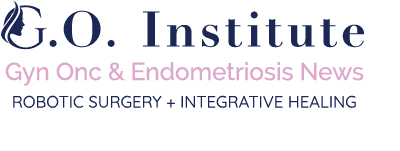In the area of cancer prevention and nutrition much has been recommended but there are areas that lack optimal scientific data. This makes solid recommendations difficult and we have a lot of wanna-be gurus conflicting “guessing” that sounds authoritative. But FIRST we need to apply the “precautionary principle”.
Precautionary Principle Nutrition and Cancer
While we wait for more precise answers from scientific evidence about details, major decisions about personal nutrition and cancer prevention are pressing and carry an urgency. There is something called the precautionary principle, used mostly in environmental health and toxicology, which is not well known or often used or even encouraged in the USA. In contradistinction, the European Union invokes the precautionary principle “when there are reasonable grounds for concern that potential hazards may affect the environment or human, animal or plant health, and when at the same time the available data preclude a detailed risk evaluation”. This means the best available scientific data, whatever it may be, is looked at carefully and a recommendation is made on that basis.
There is still much controversy surrounding many detailed aspects of nutrition in primary cancer prevention as well as prevention of recurrence, or secondary prevention. This is evident when debates occur about whether the “Paleo” diet is better than a plant-based whole food diet. But even more important is that at this moment the Standard American Diet (SAD) predominates in this country despite enough evidence to certainly invoke the precautionary principle along with numerous topics in nutrition and cancer prevention. The recommendations that follow are exactly that.
While we await the answers to deeper questions in nutrition, we should at least climb out of the fast-food nutritionally depleted abyss we are in. The problem is that for the general public, which is not aware of the deeper question debates, no one is shouting from the rooftops that the SAD diet may cause them decades of chronic illness and shave years off their life. Our government, although health education programs exist, is not playing enough of a proactive role in warnings about the state of poor nutrition in this country. Before reviewing the recommendations, here is a video that better explains the precautionary principle and why it may apply so well to look at what you eat in trying to prevent obesity and chronic disease of various types including cancer. We may not have all the answers about the Paleo diet vs. plant-based and the differences between individuals but we know full well that the SAD diet is at least largely responsible for many of our woes, including cancer.
Researchers Unveil Six Dietary Guidelines for Cancer Prevention
New recommendations published in the May edition of the Journal of the American College of Nutrition (JACN) emphasize a plant-based diet to reduce the risk of several types of cancer. (PRWeb June 10, 2014) Read the abstract and story at Http://www.prweb.com/releases/2014/06/pr… The information boiled down to abstract form is as follows:
Primary Objective: Research has identified certain foods and dietary patterns that are associated with reduced cancer risk and improved survival after cancer diagnosis. This research has formed the basis for dietary guidance issued by cancer organizations. Unfortunately, gaps within nutrition research have made it difficult to make recommendations in some areas. This review specifies suggested dietary guidance in which evidence of a dietary influence on cancer risk is substantial, even if not conclusive. Evidence summaries within the review are based on the 2007 report of the World Cancer Research Fund/American Institute for Cancer Research. This review also describes advantages and disadvantages of following the suggested dietary guidance and includes putative mechanisms involved in cancer progression. Main Outcomes and Results: Suggested dietary guidance where evidence is sufficiently compelling include (1) limiting or avoiding dairy products to reduce the risk of prostate cancer; (2) limiting or avoiding alcohol to reduce the risk of cancers of the mouth, pharynx, larynx, esophagus, colon, rectum, and breast; (3) avoiding red and processed meat to reduce the risk of cancers of the colon and rectum; (4) avoiding grilled, fried, and broiled meats to reduce the risk of cancers of the colon, rectum, breast, prostate, kidney, and pancreas; (5) consumption of soy products during adolescence to reduce the risk of breast cancer in adulthood and to reduce the risk of recurrence and mortality for women previously treated for breast cancer; and (6) emphasizing fruits and vegetables to reduce risk of several common forms of cancer. Conclusion: By adopting the precautionary principle for nutrition research, this review aims to serve as a useful tool for practitioners and patients.
The bottom line is that judicious review of what we eat and the toxins we allow ourselves to be exposed to, in essence an application of the precautionary principle, is something to strongly consider.


